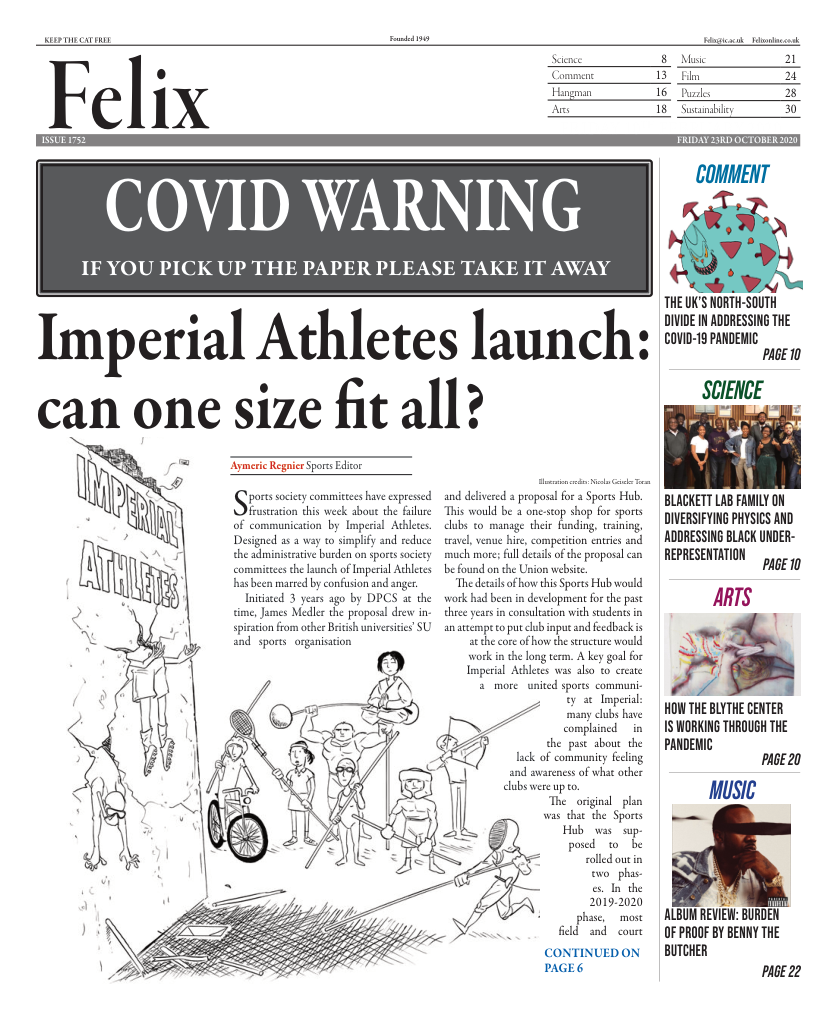Thoughts on the 2020 Felix Sex Survey
Nobody asked, but Khama Gunde has shared her opinions regardless
Another year gone, another Felix sex survey. Another opportunity to find out how many people have had sex in the library or to check if your department is getting it on the most.
One thing that impresses me each year is the variety of experiences, which consistently serves as a reminder that This year, it was interesting to see that 67% of the 24.67% of virgins who took the survey were asexual. To be asexual does not mean to concretely abstain from sex; some asexual people just have little to no interest in sex and some may have more interest. Emphasising that the idea of virgins as people who ‘just can’t get laid’, fails to capture the autonomy and diverse preferences that many have. Whilst I hope that people are losing their virginity when they feel comfortable to do so, there has always been societal pressures to have ‘the right amount of sex’. Couple this with a very myopic view on those who choose to deviate from that narrow standard and it becomes clear that the first time may not be a good time for many. Furthermore, I think it’s important to note that while there has slowly been more understanding over time about the problematic nature and consequences of slut-shaming (judging women for having ‘too much’ sex), there is a lot of ignorance around virginity, especially for university students. We should be mindful that the pendulum doesn’t swing from one extreme to the other.
Student relationships among Imperial students were surprisingly high to me. Logistically, it makes sense but I have heard discussions about how one should under no circumstance date another Imperial student. Let alone someone in the same course or, heaven forbid, someone in the same halls. Yet the survey has revealed 66.3% of those in relationships are with somebody who is either a current student or an alumnus. It doesn’t stop there though, it seems that inter-department dating is the most likely option for many, and the likelihood of that love story beginning in student halls is very high (for heterosexual couples specifically). So, despite the cautionary proverb to not soil in your own nest, it seems Imperial students are willing to risk potential future awkwardness for someone who may be ‘The One’, which is quite sweet to me.
I would like to emphasise that regardless of how you view sex, it is something that can affect and connect people in positive ways, but certain experiences can also do the opposite. It is concerning to see that only 8.88% of sexual harassment cases are reported. With 2.42% of males, 11.08% of females and 6.67% of non-binary individuals saying they had been sexually harassed at least once. Sexual harassment is something that only the perpetrator is at blame for, and the emotional weight the experience may leave on a student is not a burden that has to be carried alone. Being mindful of sexual health is also important for wellbeing, so the fact that 51.45% of respondents have never tested themselves for STIs is quite worrying. Information on STIs and sexual health services are widely available to students, NHS and SHL (Sexual Health London) are good sites to visit.
Finally, it may be tempting to look at all the data and compare yourself to others in a negative way, but I think that this survey provides a unique opportunity to see that you may not be the only one who likes things the way you do.
For help in different scenarios:
https://www.imperial.ac.uk/human-resources/procedures/sexual-harassment-sexual-misconduct-and-sexual-violence-/





